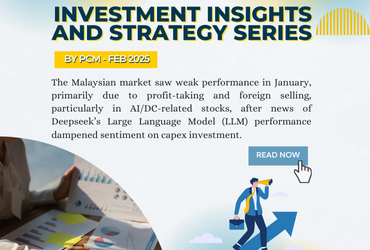
In our previous article, we have explored Malaysia’s government commitments towards attaining environmental, social and governance (ESG) goals. In fact, the government aims to deliver on renewable energy (RE) capacity of 31% over the next 3 years, 40% by 2035 and 70% by 2050. In fact, according to findings from PWC, in Malaysia, companies that prioritise ESG considerations find themselves in a favorable position to command for better valuations and investment returns in the long term, supported by higher shareholder returns and profitability. Examining the composition of the FTSE4Good Bursa Malaysia Index (F4GBM), it becomes evident that these companies command a notable 1.7x premium in terms of price-to-book value when compared with other Malaysia’s listed companies not included in the index. In addition to that, on average, F4GBM companies achieved a remarkable 16.6% return on equity and a noteworthy 14.4% net profit margin, while the others recorded comparatively modest figures, yielding 9.5% and 8.5% for return on equity and net profit margin respectively.
We believe ESG stocks often command better valuation and profitability for several reasons:
- Risk Management
ESG companies excel in risk management by addressing environmental (climate change and carbon emissions), social (labour rights and safety), and governance (transparency and disclosure) risks. By tackling these challenges, these companies may be able to avoid or minimise potential negative impacts on their operations. This enhances their long-term financial stability.
- Innovation and Operational Efficiency
Many ESG initiatives involve adopting inventive technologies and practices. Companies that invest in energy-efficient solutions (for e.g., rooftop solar panels) and waste reduction, could benefit from cost reduction and improved operational efficiency. This could contribute to higher profitability. For example, earlier in 2021, Asian food specialist Kawan Food Berhad had invested RM7.28 million in a solar photovoltaic (PV) installation at their headquarters in Pulau Indah Selangor Halal Hub and this was expected to yield RM1 million savings a year.
- Regulatory Compliance
ESG standards are frequently stringent and closely match regulatory requirements. Companies that prioritise ESG are better prepared to navigate evolving regulations concerning environmental protection, labour rights, transparency, and more. Avoiding legal and regulatory challenges contributes to enhanced profitability.
- Reputation and Brand Equity
ESG-focused companies build a strong reputation and brand. This draws support from stakeholders who value responsible practices, leading to customer loyalty, higher sales, and broader reach.
Identify investment opportunities – Phillip Managed Account for Retirement (PMART) and Phillip Managed Account (PMA) ESG
Phillip Capital Malaysia offers discretionary portfolio that invests in stocks with high ESG ratings from the F4GBM and F4GBMS Indices, namely PMART and PMA ESG. There are both conventional and Shariah options available. PMART and PMA ESG is suitable for investors who want to optimise the risk-adjusted return by constructing a diverse sustainable portfolio of ESG companies.
To explore the companies in which both Conventional and Shariah ESG mandates invest, you can refer to the provided link. We like these companies because they have received high ESG ratings, which we believe can contribute to their long-term sustainability, responsibility, and profitability.
Please click on the link to learn more or email us at cse.my@phillipcapital.com.my if you require any further information.
Disclaimer:
The information contained herein does not constitute an offer, invitation or solicitation to invest in Phillip Capital Management Sdn Bhd (“PCM”). This article has been reviewed and endorsed by the Executive Director (ED) of PCM. This article has not been reviewed by The Securities Commission Malaysia (SC). No part of this document may be circulated or reproduced without prior permission of PCM. This is not a collective investment scheme / unit trust fund. Any investment product or service offered by PCM is not obligations of, deposits in or guaranteed by PCM. Past performance is not necessarily indicative of future returns. Investments are subject to investment risks, including the possible loss of the principal amount invested. Investors should note that the value of the investment may rise as well as decline. If investors are in any doubt about any feature or nature of the investment, they should consult PCM to obtain further information including on the fees and charges involved before investing or seek other professional advice for their specific investment needs or financial situations. Whilst we have taken all reasonable care to ensure that the information contained in this publication is accurate, it does not guarantee the accuracy or completeness of this publication. Any information, opinion and views contained herein are subject to change without notice. We have not given any consideration to and have not made any investigation on your investment objectives, financial situation or your particular needs. Accordingly, no warranty whatsoever is given and no liability whatsoever is accepted for any loss arising whether directly or indirectly as a result of any persons acting on such information and advice.






